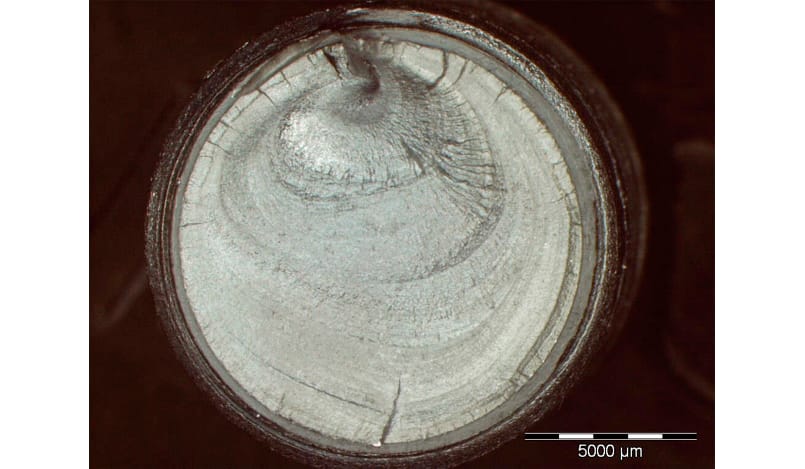Screws from a locomotive broken in service
Determine what caused in-service screw failure aboard a locomotive.
It has been ascertained that that the failure was produced by mechanical fatigue involving screw material.

Bolted joins are commonly used on structural elements that are sometimes exposed to cyclical loading stresses. Failures involving this component can have a significant impact on the overall integrity of the system where they are installed.
In this instance, Tekniker analysed screws that broke in the structural support of a traction system aboard an in-service locomotive.
After using several optical and metallographic techniques to analyse the screws, Tekniker did not find any traces of potential defects in terms of the raw materials used nor how they had been manufactured that could potentially be associated with the event in question. Clear evidence was found, however, that suggested that screws had broken due to mechanical fatigue and cyclical stresses, thus ruling out the option of a sudden rupture caused by peak stresses or loading.
